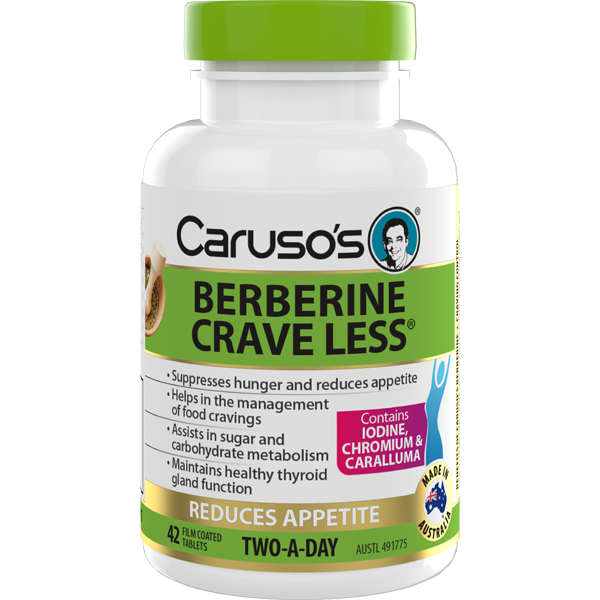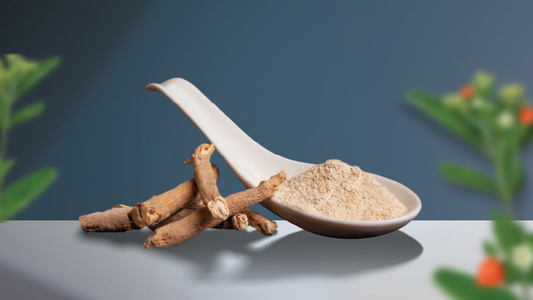
Food Cravings – More Than Just a Thought
share
That donut before dinner. The sweet treat (or two) after lunch. The salty hot chips calling your name mid afternoon.
We’ve all been there - food cravings that are all too consuming, feeling intense and often difficult to ignore. The desire for these foods is strong, and the worst part is that it is generally never for a carrot or a handful of almonds. Instead, it is the sugary, salty, or fatty stuff we go for, they are called hyperpalatable foods for a reason. Due to the hyperpalatability of these foods, satiety signals are generally missed, and overeating occurs, one piece of chocolate can turn into the whole block before you know it. Sound familiar? 1,2,3
Why Do Food Cravings Feel So Intense?
Food cravings aren’t just in your head; they are multidimensional. On top of this, we live in a world full of food cues. If we weren’t struggling enough, a commercial on television comes on about the latest fast-food deal, tempting billboards on the side of the road, and even YouTube has ads for fast food.
Each person has a different driver behind their desire for a specific food, just like everyone's craving could be different. When you start to crave a certain food, it becomes more than just a thought, you are actually preparing your whole body for the food itself. Your mouth may start watering, you start to think about how it tastes and the texture, and emotional areas of your brain involved in rewards and pleasure, such as the striatum become active. Before you know it, you're halfway through a snack you didn’t plan to eat. 1
Your Ultimate Ally: BERBERINE CRAVE LESS ®
BERBERINE CRAVE LESS ® has been carefully formulated with Caralluma adscendens var. Fimbriata, Berberis aristata, Chromium, and Iodine. This product helps manage food cravings, suppresses hunger and reduces appetite. It also aids in glucose metabolism and helps support healthy blood sugar in healthy individuals. Additionally, this product supports body metabolic rate through assisting thyroid hormone production and maintaining healthy thyroid gland function, therefore supporting energy production. Berberine Crave Less ® helps you focus on and enjoy healthier and guilt-free eating habits.
Caralluma adscendens var. fimbriata (Caralluma) is a Succulent Cactus to Help Manage Food Cravings
Caralluma adscendens var. fimbriata, often referred to as Caralluma, is an edible cactus that helps in the management of food cravings. This succulent cactus belongs to the Asclepiadaceae family, it is native to India and grows in the wild. It has been used for centuries in Indian culture to help suppress appetite during long hunting trips and in times of famine. Today, Carralluma has been in the spotlight as it can help you manage your food cravings, suppresses hunger and reduces appetite. 4,5,6
Berberis aristata a Berberine Containing Herb
Berberis aristata is commonly known as Indian Barberry and is a part of the barberry family. Berberine is a bioactive alkaloid sourced from the root of Berberis aristata and is considered one of the most important alkaloid components of this plant. Berberis aristata has been traditionally used in Ayurvedic Medicine to help support bile flow and protect the liver. 7
Additional Trace Minerals Chromium and Iodine
BERBERINE CRAVE LESS ® has additional trace minerals chromium and Iodine in the formulation. Chromium helps maintain healthy blood sugar in healthy individuals and aids digestion of glucose. Chromium also assists with carbohydrate metabolism. Iodine supports body metabolism through maintaining healthy thyroid gland function and assists thyroid hormone production therefore supporting energy production.
Always read the label and follow the directions for use.
References
1. Meule, A. (2020). The psychology of food cravings: The role of food deprivation. Current Nutrition Reports, 9(3), 251–257. https://doi.org/10.1007/s13668-020-00326-0
2. Hallam, J., Boswell, R. G., DeVito, E. E., & Kober, H. (2016). Gender-related differences in food craving and obesity. The Yale Journal of Biology and Medicine, 89(2), 161–173. https://pmc.ncbi.nlm.nih.gov/articles/PMC4918881/
3. Sun, W., & Kober, H. (2020). Regulating food craving: From mechanisms to interventions. Physiology & Behavior, 222, 112878. https://doi.org/10.1016/j.physbeh.2020.112878
4. Arora, E., Khajuria, V., Tandon, V. R., Sharma, A., Mahajan, A., Gillani, Z. H., & Choudhary, N. (2015). To evaluate efficacy and safety of Caralluma fimbriata in overweight and obese patients: A randomized, single blinded, placebo control trial. Perspectives in Clinical Research, 6(1), 39–44. https://doi.org/10.4103/2229-3485.148812
5. Rao, A., Briskey, D., Dos Reis, C., & Mallard, A. R. (2021). The effect of an orally-dosed Caralluma Fimbriata extract on appetite control and body composition in overweight adults. Scientific Reports, 11(1), 6791. https://doi.org/10.1038/s41598-021-86108-2
6. Kuriyan, R., Raj, T., Srinivas, S. K., Vaz, M., Rajendran, R., & Kurpad, A. V. (2007). Effect of Caralluma fimbriata extract on appetite, food intake and anthropometry in adult Indian men and women. Appetite, 48(3), 338–344. https://doi.org/10.1016/j.appet.2006.09.013
7. Choudhary, S., Kaurav, H., S., & Chaudhary, G. (2021). Daruharidra (Berberis aristata): Review based upon its Ayurvedic properties. International Journal for Research in Applied Sciences and Biotechnology, 8(2), 98‑106. https://doi.org/10.31033/ijrasb.8.2.12
Try it now

Caruso's Berberine Crave Less®
share
Stay Informed. Feel Your Best.
Get expert tips and actionable health advice. Be the first to hear about Caruso's product launches and receive exclusive promotional offers.
Join our newsletter today.



